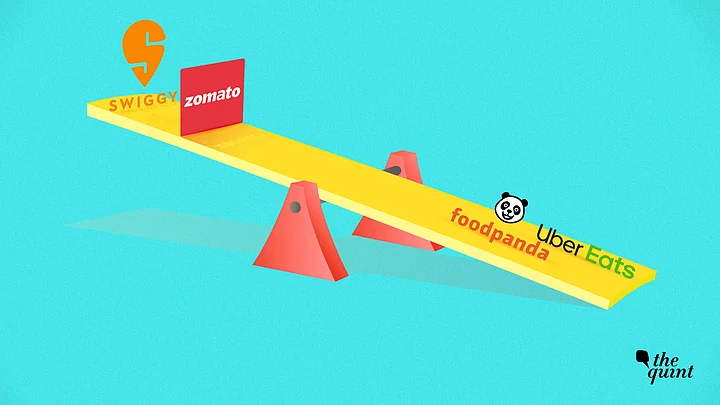The food delivery business in India is booming, but the demand is mostly met by the top two players in the market. Most people associate this segment with Swiggy and Zomato, while Uber Eats and Ola figure as the almost rans.
Now, according to reports this month, business for Uber and Ola (via Food Panda) has been slow, and the companies have decided to cut their losses, and expenses on their delivery business in the country.
A fresh new round of funds has ensured that Zomato and Swiggy can continue to bleed their resources on discounts, which has been catapulted by paid loyalty schemes like Zomato Gold and Swiggy Super respectively.
The cab-aggregators entered the segment with a lot of excitement and promise, but that seems to have fizzled out, especially as the consumers prefer making repeat purchases from the top 2 brands, now equipped to handle demand and delivery standards.
Uber tried to cut its Eats business loose by trying to broker a deal with Swiggy, but reports suggest both companies couldn’t agree on a sales valuation. The slowing business also becomes apparent with the expansion plans of these companies.
Zomato and Swiggy have tapped into the urban regions, and have gradually moved down the chain to other cities, where growth has been promising for them.
Uber Eats and FoodPanda (FP) have failed to add to their list of 30-odd cities, and they are unlikely to grow any further, if the change in focus of the business becomes visible. Most segments in the country have seen consolidation over the past year or so.
The cutbacks are being made after tepid output with deliveries for Uber Eats and Food Panda pegged to be 13 million and around 4 million orders every month, respectively.
The food delivery business is no different in that regard, giving Swiggy and Zomato the clout and room to experiment from here on and expand their horizons beyond food deliveries, restaurant bookings to hyper-local services.
Food Panda’s fate was decided the moment Ola bought it from Delivery Hero in 2017. The cab-aggregator has been spreading its wings beyond the regular business, without really consolidating its position in its core business.
Now, Food Panda is expected to function as a cloud kitchen division for Ola, enabling other restaurants to utilise its back-end facilities, which helps Ola make some money from the business.
As for Uber, it is unlikely to close Eats anytime soon, with special restaurant partnerships expected to keep it floating in locations where business has been growing for the delivery business.
This gives Swiggy and Zomato room to cement their positions in a sector which is expected to rake in billions in the coming years.
(At The Quint, we question everything. Play an active role in shaping our journalism by becoming a member today.)
